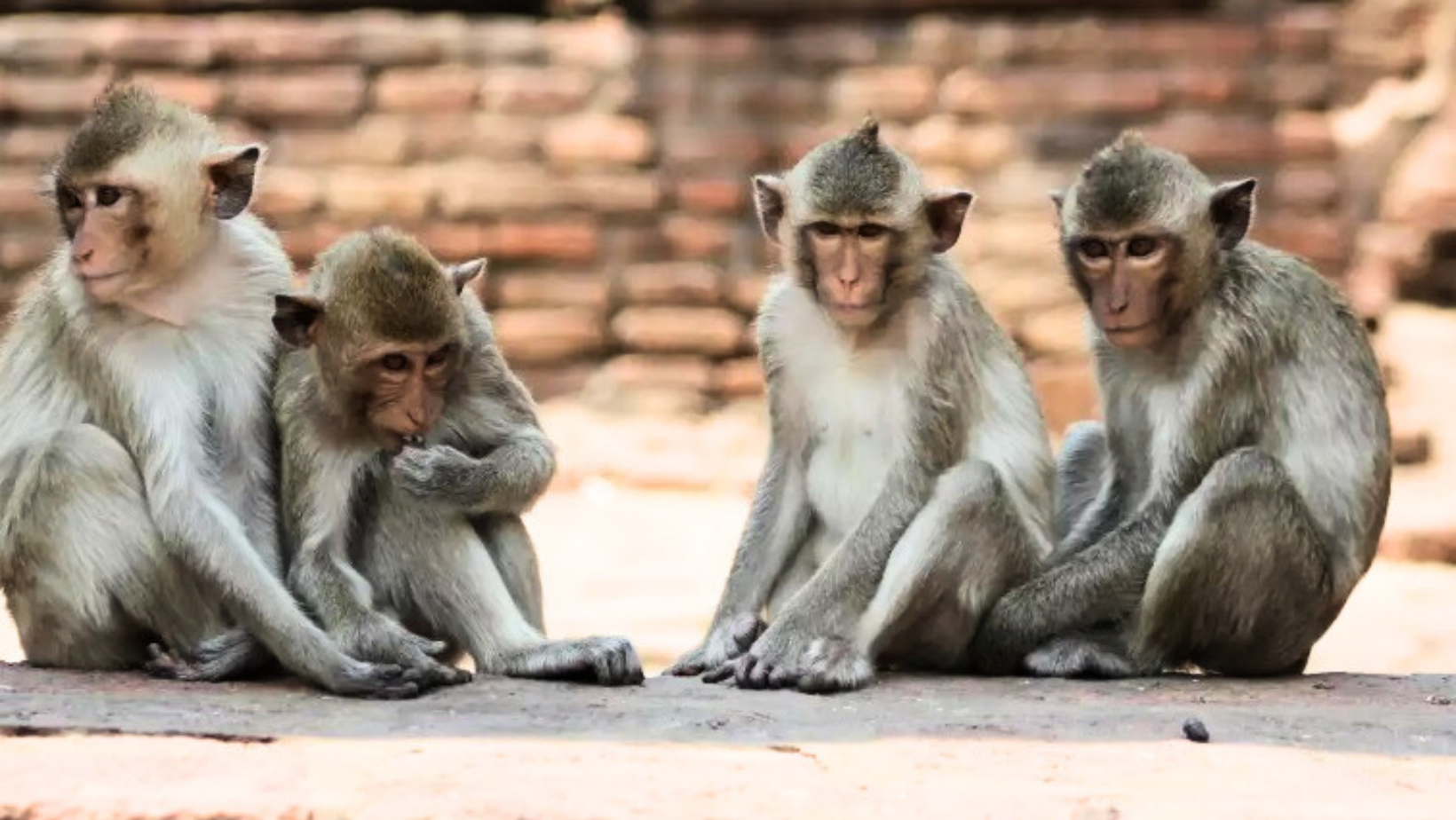Sikkim: Feeding monkeys is now an ‘offence’, violators will be fined Rs 5000
First Published: 24th August, 2023 10:13 IST
The government has expressed its serious concern over the transmission of zoonotic diseases from primates to humans and vice versa.
Feeding monkeys in Sikkim may land people in trouble, as violators will be penalized with Rs 5000. As per a notification issued by the Forest and Environment Department of the Himalayan state, feeding of monkeys (Macaque species) and improper management of food waste has resulted in unnatural growth in their population.
The government has expressed serious concern over the transmission of zoonotic diseases from primates to humans and vice versa.
As per the notification issued by Chief Wildlife Warden Sandeep Tambe, feeding the monkeys and improper disposal of food has led to increased cases of conflict between monkeys and humans in both urban and rural areas.
The Sikkim Forest and Environment Department stated, “The monkey (Macaque species) is a protected species and feeding it is strictly prohibited under the Wildlife (Protection) Act, 1972 and the Environment (Protection) Act, 1986. Henceforth, feeding of monkeys or improper disposal of food waste will be treated as an offence and violators will be fined Rs 5000. This will help to raise public awareness and have a deterrent effect as well.”
The notification also mentioned about the risks and concerns involved due to feeding of monkeys.
Safety Hazards: The monkey fed by humans lose their sense of fear and have now learnt to “associate food with people” and they get attracted and slowly become aggressive. Monkeys are wild animals, and their behaviour can be unpredictable. Feeding them encourages them to approach humans, increasing the risk of bites or injuries especially to women and children. Also, transmission of zoonotic disease from primates to humans and vice versa is another risk.
Wildlife behaviour: When food becomes readily available, instead of spending their time foraging in forests, these macaques visit offices, homes, religious places, super markets and shops hoping to get food from humans. Human food products are calorie-rich and an easily digestible source of food, however these foods elevate stress levels and increase inter-group aggression. Hence, providing food to monkeys can disrupts their natural feeding patterns and behaviour.
Health and sanitation: Feeding monkeys can create an unsanitary environment leading to the accumulation of waste and attracting pests, which can adversely affect the hygiene.
Also Read : Sikkim’s Ugen Gurung wins gold medal at 16th World Taekwondo Culture Expo 2023
COMMENTS

TOPMOST STORY NOW

Live Brother of BSF Jawan Deepak Chingakham Who Died in Cross-Border Firing by Pakistan in Jammu Appointed ASI in Manipur Police on Compassionate Grounds
11th July 2025
Live Maikhuli Villagers Protest MoU Over Assam-Meghalaya Border, Demand Return of Fishery
11th July 2025
Live Chhangur Baba Received Rs 500 Crore in Foreign Funds for Illegal Conversions: Anti-Terror Squad
11th July 2025
Live Taiwan Detects 9 Chinese Warships, 1 Aircraft Breaching ADIZ Amid Rising Tensions
11th July 2025WE RECOMMEND

Is Another GLOF Ticking in Sikkim? South Lhonak Lake Once Again Placed in Highest Risk Category
The lake has now refilled to the same dangerous level, raising serious concerns
11th July 2025
Sikkim Makes History: SHG Women Appointed as Chairpersons and OSD in State Government
They described the moment as a proud and empowering milestone for all SHG members in Sikkim.
09th July 2025
Sikkim Minister, Sonam Lama Meets Union Minister Jyotiraditya Scindia
Both leaders emphasized collaborative efforts to ensure inclusive and sustainable growth in the state
09th July 2025
Sikkim Facing Deficit Monsoon, Worst in 5 Years. Is Climate Change Taking a Toll in the Himalayan State?
Supposed to be the peak of monsoon during the first week of July, the state has registered the worst monsoon in half a decade
08th July 2025
Human Bone Fragments Found Nearly a Month After Deadly Landslide Swept Away an Army Camp in Chaten, North Sikkim
One bone piece measures approximately 13 cm, while the other is about 5 cm long.
03rd July 2025

